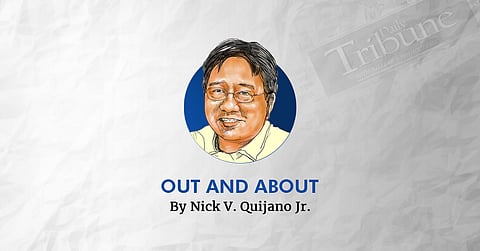
- NEWS
- the EDIT
- COMMENTARY
- BUSINESS
- LIFE
- SHOW
- ACTION
- GLOBAL GOALS
- SNAPS
- DYARYO TIRADA
- MORE

By today most of us have chosen our preferred national and local bets, only to freak out that our choices were perhaps unwittingly tainted by the fake news scourge.
But we quickly reassure ourselves. We’re optimistic that we’re fairly savvy voters and that we’ve compensated for the fact that fake news is tightly intertwined with our politics and that the modern campaigns regularly promote distortions and lies.
We pride ourselves on being informed observers of the electoral exercise. We’re acquainted, for one thing, with recent scholarly research generally saying that it is hard to establish a reliable causal influence of fake news on voting.
This is largely because of the compelling insight that whom people say they intend to vote for and how they actually vote are two different matters.
In fact, that’s the very same reason fueling our skepticism over all election surveys.
Some traditional pollsters predicting elections and referenda in the recent past have been known to fail spectacularly at predicting outcomes.
People don’t, for so many reasons, reveal or admit their actual voting intentions to pollsters and researchers, it seems.
All those reassurances give us necessary comforts.
And, setting our anxieties aside, we are confident that as we troop to the polling precincts tomorrow, on our journey towards exercising our civic obligation for the common good and a respectable democracy, voting rightly will be uneventful.
But what about other voters out there? Specifically, groups of deluded voters caught in the fake news vise? Might there be some that are victimized by fake news more than others?
For starters, uncured fake news victims are found to rate fake news as fairly accurate when it conforms to their bizarre political beliefs or mindless loyalty to political dynasties.
Both rabid supporters of Marcos and Duterte, therefore, are equally likely to rate fake news about those opposing them as accurate.
How about the undecided voters? The jury is still out on that sector.
Some studies show that the undecided are more likely to consider fake news headlines as credible. But other studies show the undecided are less susceptible to political fake news.
In any case, dark mercenary forces focus their sights on the undecided, inundating them with maximized disinformation.
Though the undecided can also be hard to crack since they are similarly cautious about revealing their voting intentions and the reasons behind them.
These amoral hucksters hustling blatant lies, meanwhile, are raking in bundles of cash, making it even harder to contain the flood of disinformation plaguing our politics.
At any rate, it’s not only the fake news created and spread by overly enthusiastic but misguided voters that’s worrying.
In this election, fears have also been raised about hegemonic foreign powers said to be actively undermining the elections with false narratives.
If not detected and countered, such insidious subversion by foreigners sows confusion and damages confidence in our democratic process.
All this thuggish undermining by the entire spectrum of fake news on the midterms, however, is yet to reach its peak, even this late in the day, on this eve of the polls. Who knows what schemes election day itself will cough up?
In fact, we can’t confidently conclude that the manipulation of the minds of voters in ways they cannot know are over and done with on election day and after.
As such, none of us can get comfortable yet, even if the voting is concluded without the usual opportunistic charges of cheating and fraud.
So much so that days after this fake news-marred election a spectre will haunt us. The poll results will more than likely trigger the ghastly question: “What has our Filipino democracy come to?
